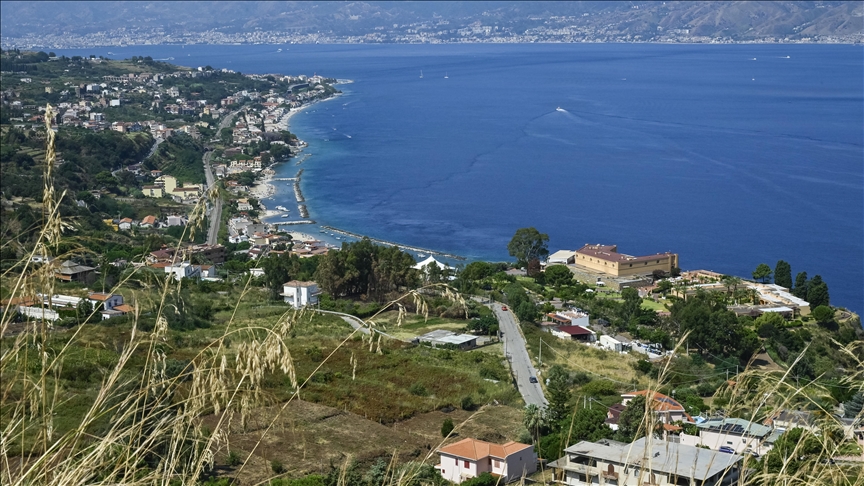Italy’s planned mega-suspension bridge to Sicily triggers dispute with US
US Ambassador to NATO Matthew Whitaker warns European allies against using creative accounting to meet recently agreed defense spending target
 A view of the Calabrian coast where Matteo Salvini, Italian Deputy Prime Minister and Minister of Infrastructure and Transport, speaks to press after he meets with the League (Lega) Party Members in Santa Trada to celebrate the approval of the project for the construction of the Strait of Messina Bridge in the province of Reggio Calabria, Italy on August 7, 2025. This would be the longest suspension bridge in the world, connecting Italy mainland with Sicily, for an overall cost of 13.5 billion euros.
A view of the Calabrian coast where Matteo Salvini, Italian Deputy Prime Minister and Minister of Infrastructure and Transport, speaks to press after he meets with the League (Lega) Party Members in Santa Trada to celebrate the approval of the project for the construction of the Strait of Messina Bridge in the province of Reggio Calabria, Italy on August 7, 2025. This would be the longest suspension bridge in the world, connecting Italy mainland with Sicily, for an overall cost of 13.5 billion euros.
ISTANBUL/ROME
A proposal to classify Italy’s planned Strait of Messina Bridge under NATO defense spending commitments has drawn objections from the US.
The long-discussed bridge, which would connect the mainland to the island of Sicily, which was recently granted final approval by Prime Minister Giorgia Meloni’s right-wing coalition government, is already a controversial topic domestically, and now it has sparked international debate from a different angle.
According to reports, the Meloni government had considered presenting the €13.5 billion ($15.7 billion) bridge as a “strategic security infrastructure project” to be counted toward NATO member states' commitment made at the NATO summit in The Hague in June, where they pledged to spend 5% of their economic output, or Gross Domestic Product (GDP), on core defense and broader defense and security-related investments by 2035.
The bridge proposal reportedly raised concerns in Washington.
US Ambassador to NATO Matthew Whitaker, in an interview with Bloomberg, warned European allies against using creative accounting to meet the recently agreed spending target.
Whitaker underlined that the 5% should not include spending on “bridges without strategic military value.”
“The Messina Strait Bridge is currently being financed entirely with state resources, and no defense funds are being allocated. At present, the use of NATO resources is not under discussion and, above all, is not an absolute necessity," said the Italian Transport and Infrastructure Ministry in a statement in response to Whitaker’s remarks.
Italy, however, clarified that NATO funds will not be used for the bridge project.








